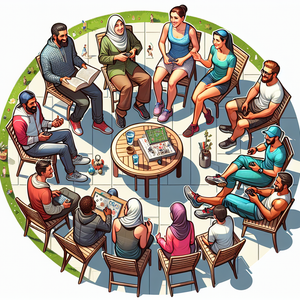The Evolution of Raider Nation: From Oakland to Las Vegas

The Raiders began their journey in Oakland, where they quickly established a reputation as a rebellious and innovative team. The fans embraced the team with fervor, creating a passionate community that laid the foundation for what would become Raider Nation. However, in 1982, the franchise faced its first major upheaval when the team relocated to Los Angeles. This move was not without its challenges. The Raiders had to leave behind a loyal fan base in Oakland, leading to mixed feelings among supporters. Yet, in Los Angeles, the Raiders found new energy and a fresh start, capitalizing on the city's vibrant culture. Under head coach Tom Flores, the team reached new heights, winning Super Bowl XVIII in 1984 and solidifying their place in NFL history. The move also introduced a new generation of fans who embraced the team's rebellious spirit and distinctive identity, characterized by the famous "Raider mentality" that celebrated toughness and defiance.
Back to Oakland: A Return to Roots
In 1995, after more than a decade in Los Angeles, the Raiders returned to Oakland. This homecoming was marked by a wave of nostalgia and a rekindling of the original Raider spirit. The fans welcomed the team back with open arms, demonstrating that loyalty can withstand the test of time. The return to Oakland also sparked a revival of the community culture that defined the team in its early years. However, the Raiders faced significant challenges upon their return, including stadium issues and a struggle to regain their former glory. The infamous Oakland Coliseum, while rich in history, was often criticized for its outdated facilities. Yet, through it all, the bond between the team and its fans only deepened. Raider Nation, known for its unwavering support and unique traditions, became a symbol of resilience, as fans rallied together to support the team through thick and thin. Events like the annual "Raider Nation Takeover" showcased the loyalty and passion of fans who traveled to support their team, regardless of the challenges faced.
The Move to Las Vegas: A New Chapter
In 2020, the Raiders embarked on another chapter in their storied history, relocating to Las Vegas. This move was not merely a change of scenery but a strategic decision to tap into a burgeoning sports market. Las Vegas offered the promise of new opportunities, both for the team and its fans. However, it also raised questions about the preservation of Raider culture and identity amidst such a significant transition. The relocation to Las Vegas has provided the Raiders with state-of-the-art facilities and a vibrant new fan base. Allegiant Stadium, with its modern amenities and capacity of 65,000, has become a fortress for Raider Nation, attracting fans from all over the country. The excitement of game days in Las Vegas, combined with the city’s unique entertainment landscape, has created a new and dynamic atmosphere that has revitalized the team's presence. The inaugural season in Las Vegas saw a surge in merchandise sales and fan engagement, showcasing the team’s ability to adapt to a new environment.
Maintaining the Raider Identity
Despite the geographical shifts, one constant remains: the unyielding spirit of Raider Nation. The culture of camaraderie, loyalty, and rebellion that defined the Raiders in Oakland continues to thrive in Las Vegas. Fans don their black and silver gear, paint their faces, and uphold the traditions that have been passed down through generations. The Raider fan base has demonstrated a remarkable ability to adapt while remaining fiercely loyal to the team's legacy. Moreover, the Raiders have actively embraced their diverse fan base in Las Vegas, engaging with the community and promoting inclusivity. Events, tailgates, and outreach programs have helped create a sense of belonging among fans, reinforcing the idea that being a Raider extends beyond geographical boundaries. The team's community initiatives, including charitable partnerships and youth outreach programs, further solidify the connection between the Raiders and their fans, showcasing the franchise's commitment to its roots.
The evolution of the Raiders from Oakland to Las Vegas is a testament to the resilience of both the franchise and its devoted fans. Through relocations, challenges, and triumphs, the Raiders have maintained an unbreakable connection with their supporters. Raider Nation continues to thrive, embodying the spirit of loyalty, community, and passion that defines this storied franchise. As the Raiders embark on this new chapter in Las Vegas, one thing remains clear: the heart and soul of Raider Nation will always be rooted in its rich history and unwavering dedication to the team. The journey from Oakland to Las Vegas has not just been about changing locations but about preserving a culture that transcends geography, ensuring that Raider Nation remains a formidable force in the world of sports.
Sports Marketing Manager
Core Responsibilities
Develop and implement marketing campaigns to promote the team's brand and events.
Analyze market trends and fan engagement metrics to optimize outreach strategies.
Collaborate with media and sponsorship partners to enhance visibility and revenue.
Required Skills
Strong understanding of digital marketing and social media platforms.
Excellent communication and project management skills.
Experience in the sports industry is a plus, particularly with fan engagement strategies.
Common Employers
NFL teams
sports marketing agencies
sports broadcasters
Community Relations Coordinator
Core Responsibilities
Organize community outreach programs and events that engage fans and foster goodwill.
Build and maintain relationships with local organizations and non-profits.
Manage the team’s public relations efforts, including press releases and media inquiries.
Required Skills
Strong interpersonal and networking skills.
Experience in event planning and community engagement initiatives.
Background in public relations or communications, ideally in a sports setting.
Common Employers
Professional sports teams
sports foundations
community organizations
Sports Data Analyst
Core Responsibilities
Analyze player performance metrics and game statistics to inform coaching decisions.
Utilize data visualization tools to present findings to coaching staff and management.
Conduct research on opposing teams to identify strategic advantages.
Required Skills
Proficiency in statistical analysis software (e.g., R, Python, SQL).
Strong analytical skills and attention to detail.
Background in sports management, statistics, or data science.
Common Employers
Professional sports franchises
analytics firms
sports tech companies
Event Operations Manager
Core Responsibilities
Oversee logistics for game day operations, including crowd management and facility setup.
Coordinate with multiple departments to ensure a seamless fan experience.
Develop emergency response plans and ensure compliance with safety regulations.
Required Skills
Strong organizational and leadership skills.
Experience in event planning and operations, preferably in a sports or entertainment context.
Ability to work under pressure and manage multiple tasks simultaneously.
Common Employers
Sports venues
event management companies
professional sports teams
Merchandise Buyer
Core Responsibilities
Select and purchase merchandise that aligns with the team’s brand and fan preferences.
Analyze sales data to forecast trends and optimize inventory levels.
Collaborate with vendors to negotiate pricing and delivery schedules.
Required Skills
Strong negotiation and analytical skills.
Knowledge of retail trends and fan merchandise preferences.
Experience in retail buying or merchandising, particularly in sports.
Common Employers
Sports merchandise retailers
professional sports teams
e-commerce platforms


